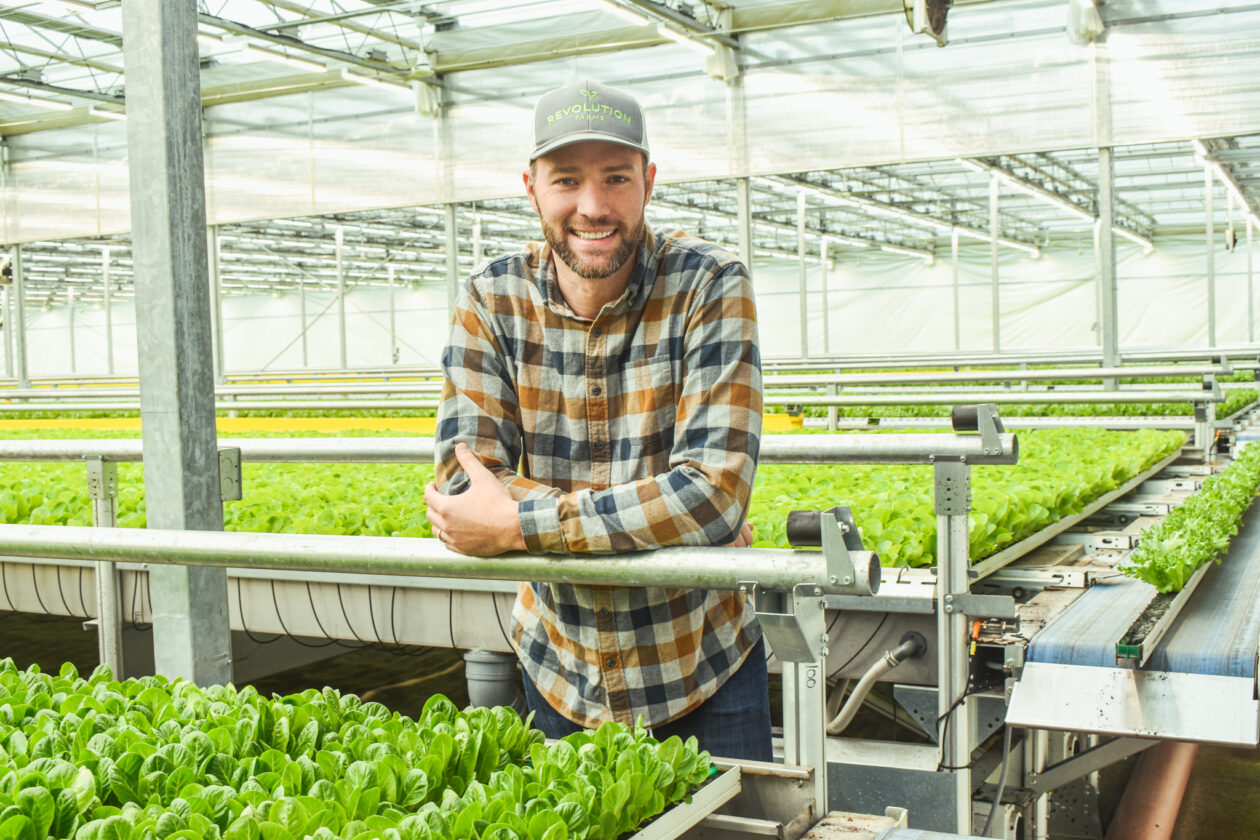Getting food to the homes of families in need across 40 counties is no simple task. That’s why Feeding America West Michigan relies on the generous support of diverse partners to accomplish our mission. This year, we’re taking a deeper look at one of our most essential types of partners—our food donors. These farmers, retailers, manufacturers and “food drivers” help keep our shelves stocked so we can keep meeting the need for charitable food. Every month, we’ll be highlighting one of these amazing food donors who makes our work possible.
Lettuce contains many vitamins and minerals, so it’s a great addition to anyone’s plate. While often enjoyed in salads, it’s an easy add-in to many dishes—like burritos, burgers or sandwiches.
But lettuce is not the easiest veggie for our food-insecure neighbors to access. It can be expensive in stores, and because it’s so perishable, it’s hard for food pantries to keep in stock. Feeding America West Michigan rarely receives donated lettuce from retailers because of its short shelf life. After sitting on store shelves, it simply wouldn’t make it to neighbors in need before going bad.

That’s why we’re so grateful for Revolution Farms, a Caledonia-based lettuce grower. Some weeks, they produce far more lettuce than they can sell, which means there is some left over to donate to the food bank and other hunger-relief programs in our community! Each year, they aim to donate at least one percent of their product to the charitable food industry. So far, they’ve donated almost 2,000 pounds of lettuce to Feeding America West Michigan in 2022.
Often, their lettuce is distributed at Mobile Food Pantries—just a few days after harvesting. Because it’s grown nearby, the lettuce they produce has a far-longer shelf-life than other lettuce you’d find in stores. One of their lettuce varieties—called “living lettuce,” since it’s packaged with its roots still intact—has a shelf-life of 45 days! That’s perfect for those of us prone to sticking it in the fridge and forgetting about it—and a great way to reduce food waste.
The lettuce is planted and harvested largely by machines!
Their farm recently expanded, so they’re growing lots more lettuce than before. In fact, they’re the largest lettuce producer in Michigan! With the new addition to the farm, they can grow 1.5 million pounds of lettuce each year, and they’re now supplying lettuce to all 250+ Meijer stores for the retail chain’s Meijer Fresh salad kits.
“There’s a mission that goes beyond just making money in business,” said Trent, the organization’s president. “We’re trying to do things in a better, more sustainable way, providing jobs and nutrients for people. It’s core to our mission.”
Revolution Farms follows many sustainable practices when growing their lettuce, such as using hydroponic methods that require less water. Their method prevents food waste not only by donating excess, but by shipping products only in the Midwest, meaning less time—and gas—wasted on the road.
Feeding America West Michigan is grateful to receive their lettuce and ensure it finds its way to the homes and plates of neighbors in need. Thank you!
Story written by Communication and Marketing Specialist Juliana Ludema.

